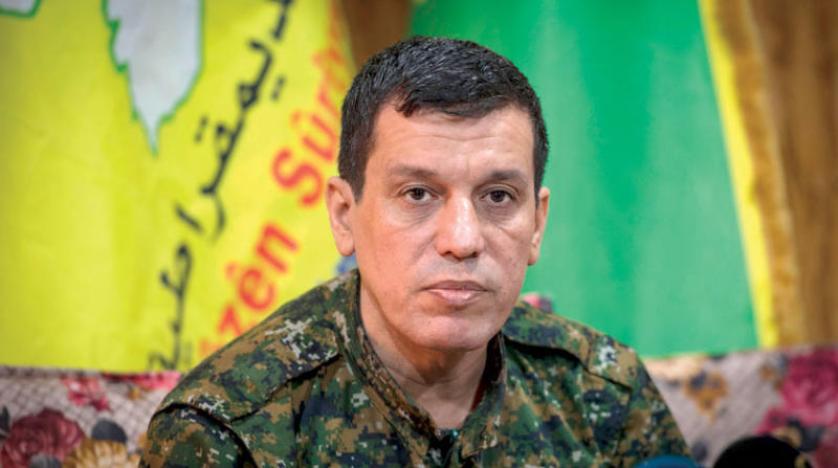Following developments in northeastern Syria, leaders of the Syrian Democratic Forces (SDF) and the Syrian Democratic Council (SDC) have held two meetings with a U.S. State Department delegation.
Deputy Assistant Secretary of State for Eastern Affairs, Ethan Goldrich, led the U.S. delegation, which comprised several diplomats and military leaders.
SDF has not officially announced where the meeting took place, which occurred in northeastern Syria, on Saturday. The meeting is believed, however, to have taken place at a U.S. base.
According to SDF’s official website, the U.S. delegation held a “lengthy meeting” with Mazloum Abdi, commander of the SDF, and discussed the recent situation in the region and Syria.
“The U.S. delegation stressed the importance of maintaining the de-escalation agreement, as well as upholding the ceasefire across the region and Syria more generally,” the website said. The delegation also discussed various security and economic difficulties in northeastern Syria.
The US delegation also held a second meeting with Ilham Ehmed, president of the Syrian Democratic Council’s (SDC) executive board, as well as Berivan Khaled and Abdul Hamid al-Mahbash, the joint presidents of the Autonomous Administration’s executive board.
The SDC delegation made several requests to the U.S. delegation, Berivan Khaled told the North Press Agency. First and foremost, the SDC delegation wanted “to ask the United States to clarify its stance on Turkish threats against northeastern Syria.”
Khaled said that the [SDC] delegation had called for “support and assistance to overcome the region’s crises,” as well as “the lack of wheat reserves and their impact on bread supplies, the strategy for enticing investors to the region to revive the area economically, and how to secure exemptions from the Caesar Act.”
The SDC delegation also called on the U.S. delegation to press for “the opening of the Tel Kojer (al-Yarubiyah) crossing with Iraq to enable humanitarian aid to arrive,” Khaled said.
The U.S. delegation’s visit comes at a time when the region is on high alert, amidst repeated Turkish threats to launch a military operation against SDF in the area.
The United States has reiterated promises that its military forces will be maintained in eastern Syria, to fight ISIS.
“ISIS poses a direct threat to both the Syrian people and the national security interests of the United States,” said one Twitter post by the U.S. Embassy in Damascus.
“The United States will maintain its military presence in Syria, to ensure that the threat of the terrorist group [ISIS] is eliminated. The Syrian and American people deserve nothing less.”
ISIS poses a direct threat both to the Syrian people and U.S. national security interests. The U.S. will maintain our military presence in Syria to ensure the threat from the terrorist group is eliminated. The Syrian and American people deserve nothing less.
— U.S. Embassy Syria (@USEmbassySyria) November 12, 2021
Kurds stick to “bargaining chips” with Damascus
In other news, Asharq al-Awsat reported that a new round of negotiations had started between the Syrian government and the Kurds under Russian auspices. These reports conflicted with denials of such talks from SDF Commander Mazloum Abdi, Chairman of the Syrian Democratic Council Riad Darrar, and Autonomous Administration Vice-President Badran Jia Kurd.
SDF controls about 85 percent of Syria’s oil reserves and 45 percent of the country’s natural gas fields.
SDF, the Autonomous Administration, and the political arm SDC also control the center of the Raqqa governorate and most of its countryside east of the Euphrates; the town of Tabqa, south of the river, which is run by a civilian governing council; and the rural east and west of Deir-ez-Zor.
The military forces under their control number 110,000 personnel, of which 30,000 are border guards deployed along the front lines and points of engagement. Another 20,000 operatives work for the internal security forces, known as the Asayish, which are spread over 7 local administrations. There are also 50,000 combat soldiers deployed across four governorates.
This article was translated and edited by The Syrian Observer. The Syrian Observer has not verified the content of this story. Responsibility for the information and views set out in this article lies entirely with the author.


